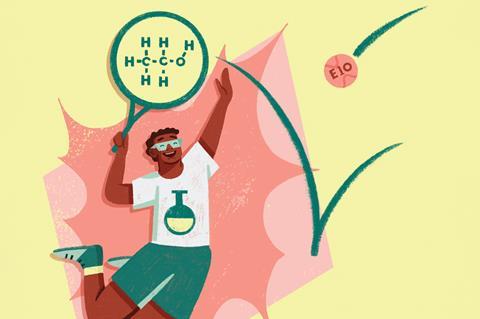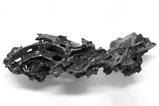The UK Chemistry Olympiad questions are challenging, requiring learners to indulge in some higher-order thinking and problem solving. Here, the question setters round up some of their favourites from past competitions
When the UK Chemistry Olympiad working group members come up with the questions, they’re hoping to challenge, entertain and enthuse learners about the importance of chemistry in their everyday lives. You’ll find many of their favourite questions and their solutions on the Olympiad webpages, but here they share their favourites and reveal why they’re memorable.

UK Chemistry Olympiad questions aim to challenge, entertain and enthuse learners about the importance of chemistry in their everyday lives. They’re set by members of the working group – without them there wouldn’t be a UK Chemistry Olympiad. You’ll find many of their favourite questions and their solutions on the RSC website (rsc.li/3WNFDu5).
A cheesy question
The 2023 International Chemistry Olympiad was in Switzerland. Liz Truss was about to become prime minister when we started writing the question, and we used her infamous speech about imported cheese to give it a humorous political angle. The question explored the chemistry of cheese and included balancing equations and an equilibrium question about whether the carbon dioxide that causes the bubbles in holey Swiss cheese is in gaseous form or is dissolved in the cheese itself. By the time the Round one paper was sat, she was no longer prime minister, requiring some very last-minute question edits.
Ben
I really liked the question about cheese because while writing it we came up with the state symbol for cheese: (ch). My students that sat the paper found this quite funny.
Helen
Sustainable solutions
I like it when we can use news stories about climate change and sustainability as inspiration for questions. In 2022, we looked at the switch from E5 petrol to E10 petrol and asked students to calculate the effect this has on carbon dioxide emissions.
Ben
A knotty problem
The 2022 International Chemistry Olympiad host was China, so we wrote a question about a recent publication that examined molecular versions of traditional Chinese knots. The question examined the organic and inorganic chemistry used to make these molecular versions of this ancient art form.
JL
Getting in a twist
The 2017 question about the molecule twistane is memorable for me as we used a photo of my son dressed as Oliver Twist in the question paper. The question looked at molecule conformations, NMR and the chemical synthesis of twistane.
Penny
Bamboozled by gallium
When I participated in the Romanian Chemistry Olympiad as a student, we were asked to identify compounds in salts based on their properties, masses and reactions. I realised that gallium was likely one of the answers. However, the melting point provided was much lower than I thought gallium’s should be, as a metal. I therefore didn’t write down an answer. I now know that gallium’s melting point is so low that magicians bend spoons made of it!
Anamaria
All shook up
One of my favourite questions to mark was a 2019 one that examined how pressure builds up in cans of pop and the maximum temperature you can store a fizzy drink at. Many students confused the units and decided that cans can’t be stored above about one degree centigrade. I imagined flying coke cans as I walked down the supermarket aisle while I marked their answers.
Penny
Don’t be so negative
Last year there was a question about electronegativity. This year, I used the question as an extension task with my year 12s when I was teaching the topic. It helped students to realise that the ionic and covalent bonding that we teach them at GCSE are the pure, extreme examples and that actually there’s a spectrum of bonding, all related to electronegativity. There’s also a lovely triangle in the question that compares the different types of bonding.
Helen
Thank you to working group members, Ben Pilgrim, associate professor of chemistry at the University of Nottingham; Helen Alonzi, head of science and chemistry at St Bartholomew’s School, Newbury; JL Kiappes, chemistry lecturer at University College London; Penny Robotham, vice principal at the National Mathematics and Science College, Coventry; and Anamaria Leonescu, chemistry PhD student at University College London for sharing their favourite questions. Responses have been edited for length and clarity.
Join Teach Chemistry
The UK Chemistry Olympiad is open to all Teach Chemistry members. If you’re not already signed up, join for free today.

Getting the most out of the UK Chemistry Olympiad
- 1
- 2
- 3
- 4
- 5
- 6
- 7
 Currently reading
Currently readingQuestions, questions, questions …
















No comments yet